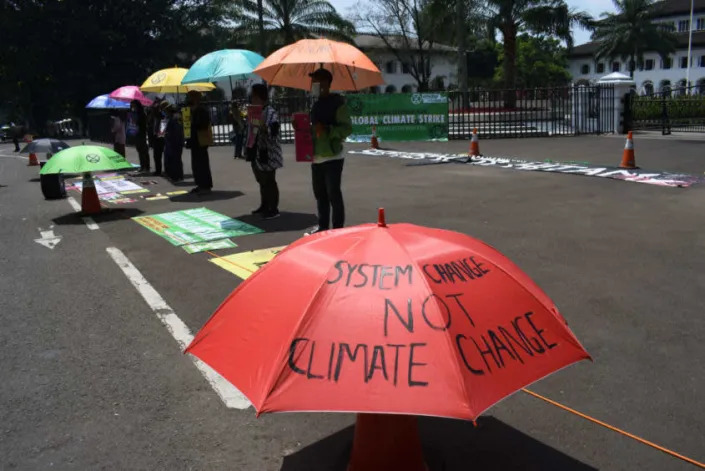The Week
Today’s kids will experience 3 times as many climate disasters as their grandparents, new study predicts
Peter Weber, Senior editor September 27, 2021

If the Earth continues to warm at its current pace, a 6-year-old child will experience about three times as many climate disasters as their grandparents, a first-of-its-kind study in the journal Science predicts, based on a wide array of climate and demographic models. The study, published online Sunday, attempts to quantify how much kids will be affected by the “intergenerational inequality” of climate change.
The average 6-year-old will live through twice as many wildfires, 3.4 times as many river floods, 2.3 times as many droughts, 2.5 times more crop failures, and 1.7 times as many tropical cyclones as someone born in 1960, the 37 researchers determined. Compared with people who lived 150 years ago, in pre-industrial times, today’s children will experience five times more climate disasters — or if they live in sub-Saharan Africa, 50-54 times as many heat waves, The Washington Post reports.
And those numbers are almost certainly an underestimate, says co-author Joeri Rogelj at Imperial College London, noting that the researchers were unable to quantify certain risks, like floods from rising ocean levels, and did not account for the increased severity of climate-related events, just frequency.
Georgia Institute of Technology’s Kim Cobb, who did not work on the study, said the climate scientist in her was not surprised by the findings — but the “robust study” did hit her on the parental level. “It brings into sharp focus what so many economic models of climate change impacts fail to capture — the vast toll of human suffering that is hanging in the balance with our emissions choices this decade,” she tells the Post. “The moral weight of this moment is almost unbearable.”
Lead author Wim Thiery said the study was partly inspired by his three young sons. “Young people are being hit by climate crisis but are not in position to make decisions,” he said. “While the people who can make the change happen will not face the consequences.”
But Thiery also wanted to hit home to world leaders that the most dire of these outcomes can be avoided by taking dramatic steps to reduce emissions at the United Nations climate summit in Glasgow this fall. “We can still avoid the worst consequences,” he said. “That is what gives me strength as a father.” Read more at Science and The Washington Post.
